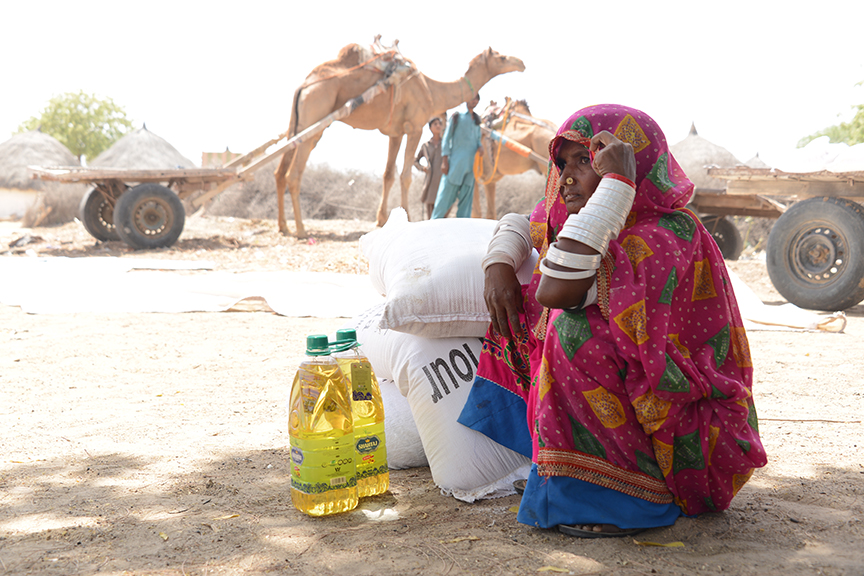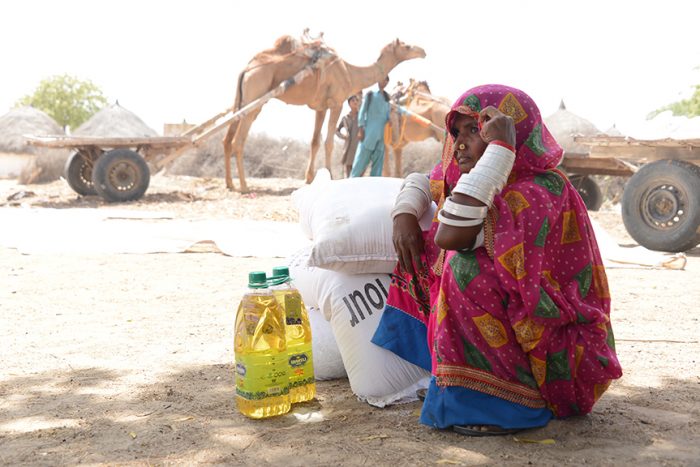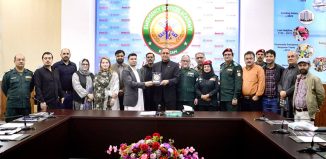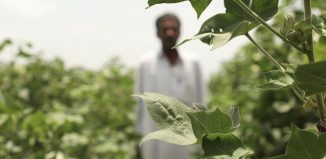Providing sustainable humanitarian support to farming families affected by climate change and Covid-19














Community World Service Asia has partnered with Presbyterian World Service and Development (PWS&D) and Canadian Foodgrains Bank to implement a Humanitarian, Early Recovery and Development (HERD) program to support drought and climate change impact communities with food provision and sustainable agricultural inputs. The project aims to assist most vulnerable, rural agrarian communities in Pakistan’s rain-fed Umerkot District of Sindh. The target communities will receive immediate humanitarian support, followed by recovery and development assistance, to ensure their resilience is enhanced against future natural and man-made catastrophes.
A total of 1,125 drought and COVID-19 affected families have been provided with two monthly food packages under the project. They will continue to receive the food packages till August (to complete a period of six months). Each package has been designed in line with the Sphere minimum standards and ensures all family members receive 2100k calories each per day. The items include 60kg of wheat flour, 15kg rice, 7kg pulses, 6liters cooking oil, 4 kg sugar, 400gms tea leaves, 800gms iodized salt and of match boxes. Feedback mechanisms that are put in place to ensure quality and accountability mainstreaming have been explained to communities at various stages of the project. Communities have also been oriented on safeguarding and complaints response guidelines.
Through the provision of food packages, we aim to ensure food security of affected communities in various parts villages of Umerkot to increase their nutritional status and improve their general health. Most of these communities live in extreme poverty, with their primary livelihood of agriculture being affected by extreme weather conditions that prevent them from spending on the most basic food and health needs.
A Rapid Gender Analysis was conducted as part of the project to gather critical information and data on the local gender dynamics and the many challenges and needs that exist and potential goals and opportunities to explore and meet through the project. The analysis is a necessary first step in creating gender-sensitive, suitable, and successful programming. It is supporting in the development of practical programming recommendations to suit the needs of women, men, boys, and girls, as well as ensuring that execution does not unwittingly harm them. Additionally, an environment assessment has also been conducted to identify environmental impacts of different project activities and their possible mitigating measures.
The HERD project is a two years’ program started from January 1, 2022 with ten months of humanitarian phase and 14 months of recovery and development phase. The project will end in 2023.







